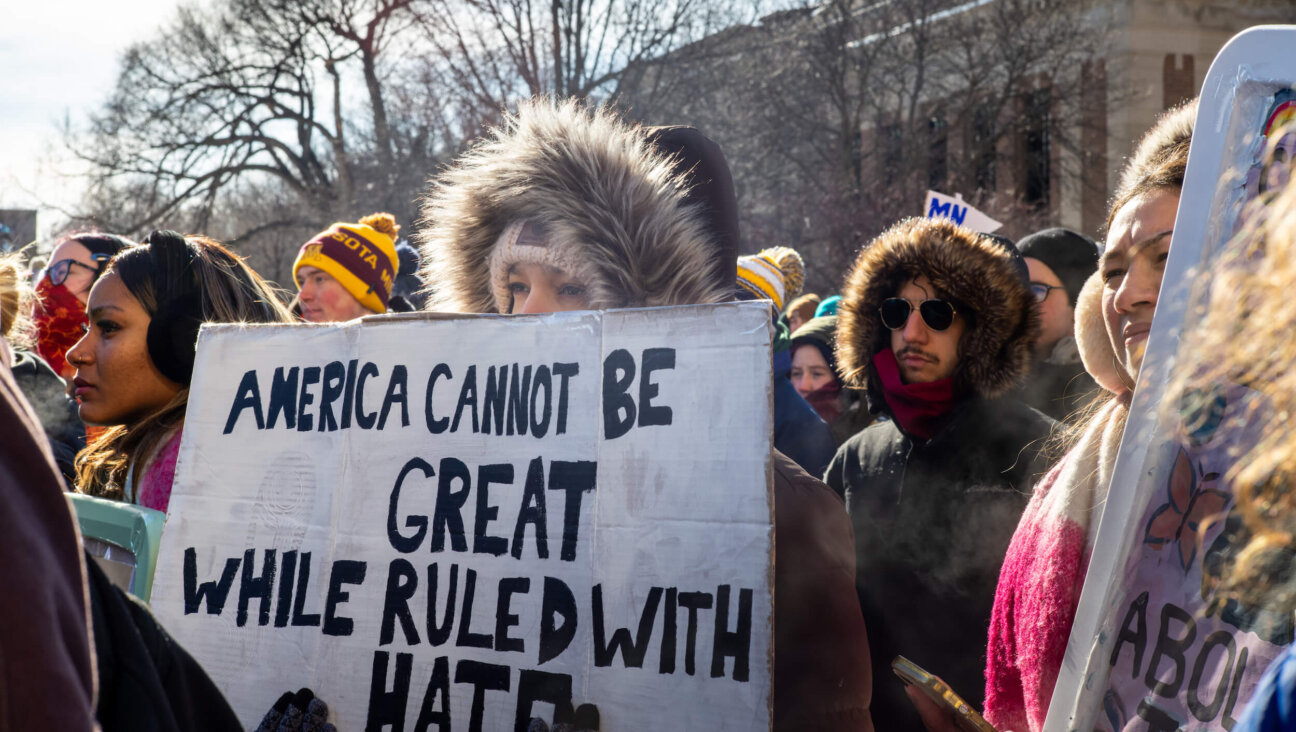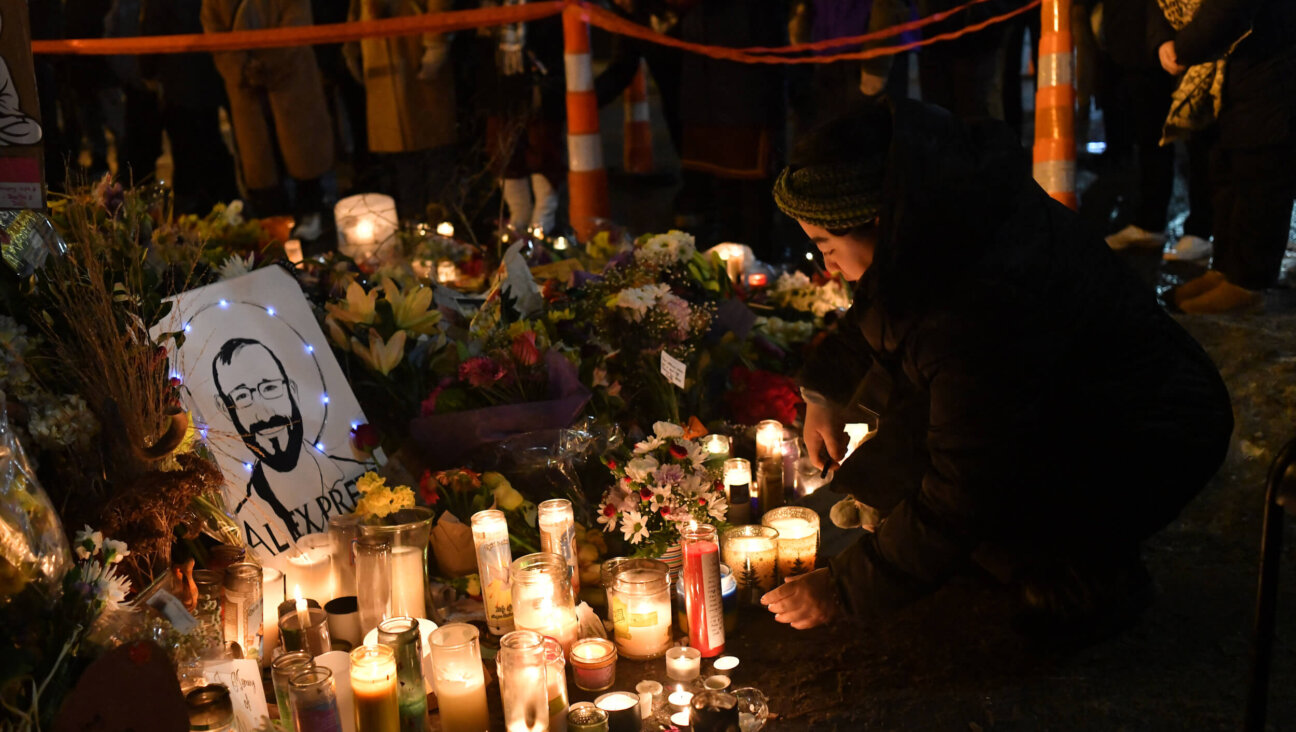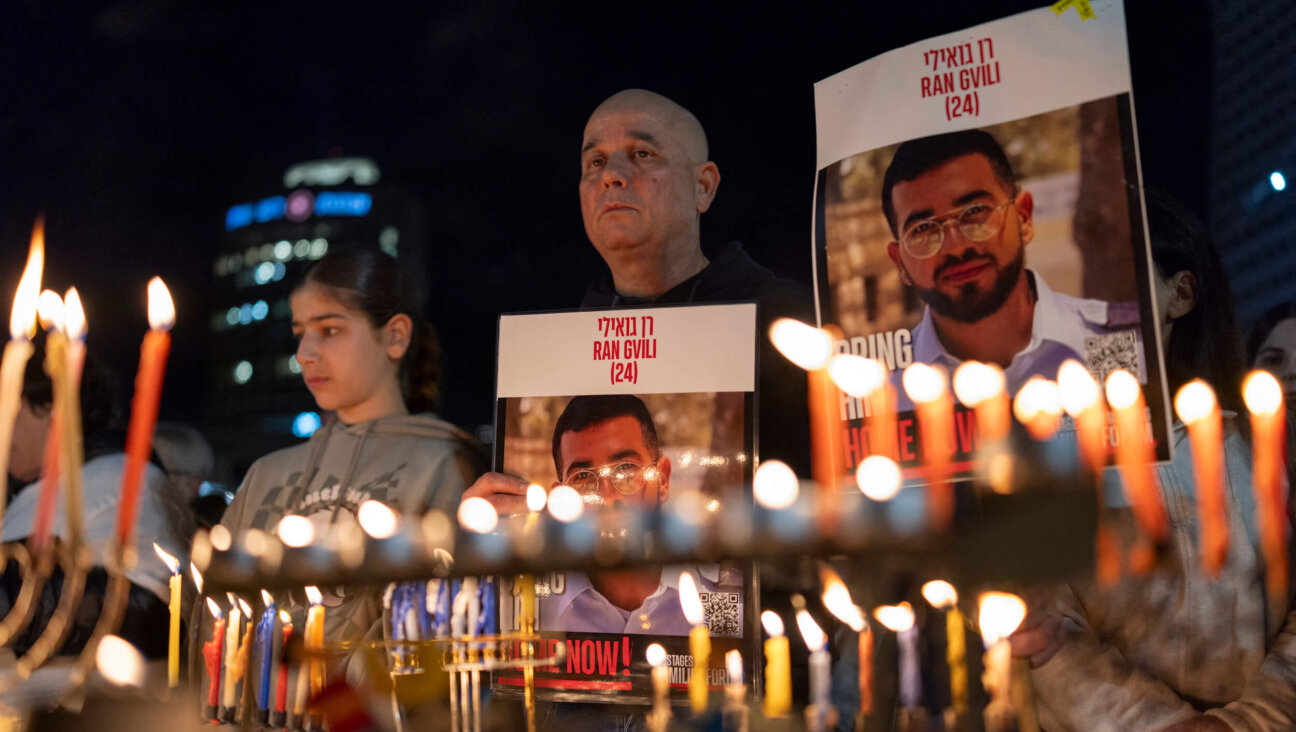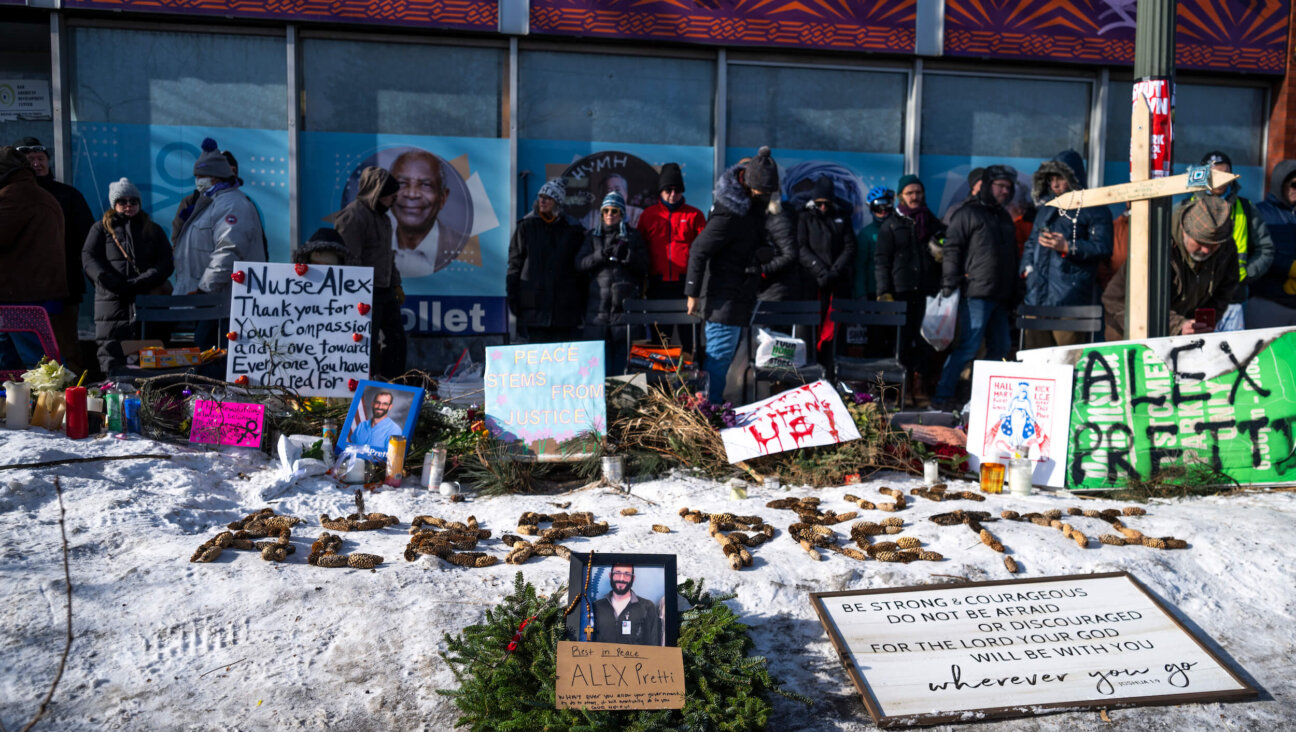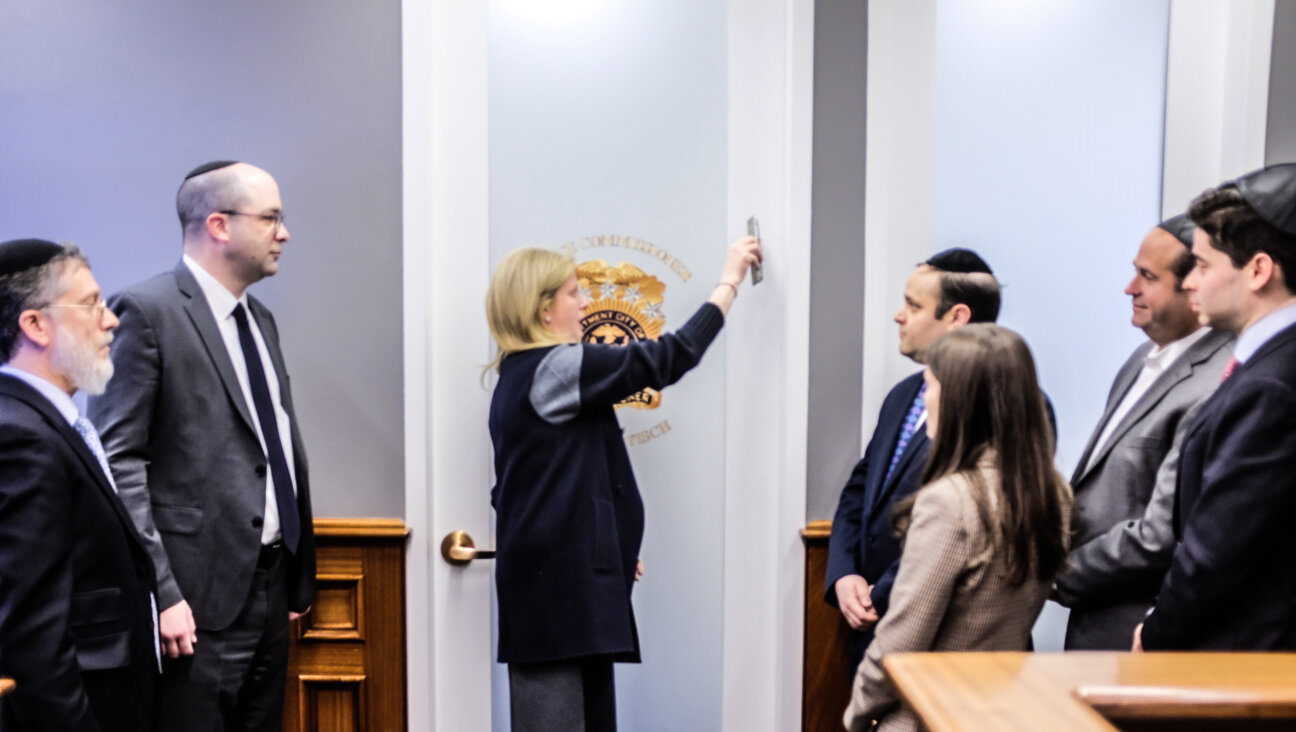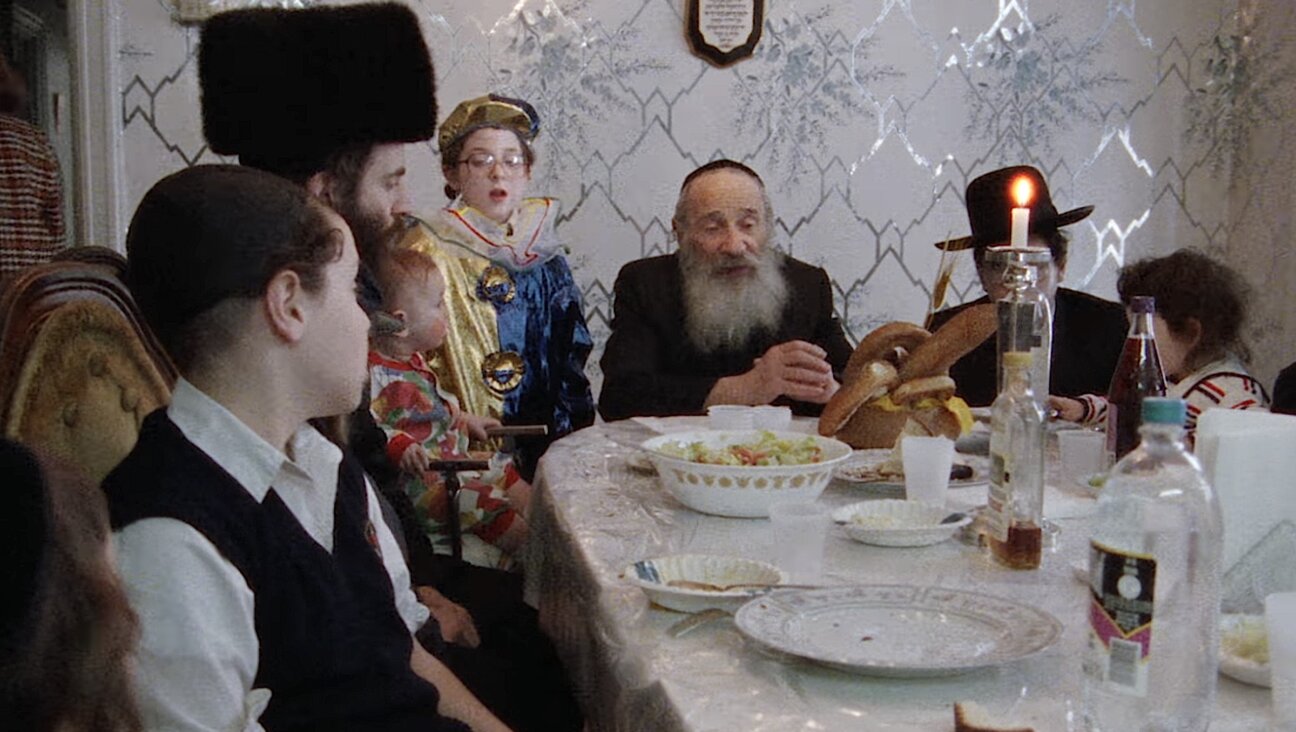Were Students Punished for Protesting Israel?

Graphic by Angelie Zaslavsky
A member of Students for Justice in Palestine protests in Washington, D.C. / Getty Images
Debate about Israel and Palestine on college campuses is coming to a head this week, with over 200 activists expected to rally in solidarity with Northeastern University’s chapter of Students for Justice in Palestine (SJP) on Tuesday.
Northeastern formally suspended SJP last week after the chapter distributed 600 “mock eviction notices” to campus dorms. These notices, similar to those distributed by SJPs across the country and clearly marked as fake, provided facts about Israel’s demolition of Palestinian homes.
Northeastern SJP has been subject to an opposition campaign from right-wing pro-Israel groups for months. In November 2013, the Anti-Defamation League (ADL) and Combined Jewish Philanthropies (CJP) claimed students and faculty reported “virulent and intimidating anti-Israelism, or even anti-Semitism” at Northeastern. But the ADL and CJP’s own words indicate these anti-Semitism allegations are not so cut and dry.
Everyone has the right to criticize a foreign government when it breaks international law, even if others have deep emotional ties to it. Students do not have the right to incite violence against others based on religion or nationality. This raises the question: do SJP’s actions actually threaten harm to Jewish students and faculty? In other words, is SJP anti-Semitic?
First, there are countless Jews who are active members of the Palestine solidarity movement. Some serve as chapter presidents for SJP chapters. Many are well respected authors, community leaders, and even rabbis. A growing number of Israelis, like the young conscientious objectors who mailed a letter to Netanyahu last week, are coming out and criticizing their government’s actions both in the Occupied Territories and in Israel. So blanket statements that criticism of Israel makes university campuses “unsafe” for all Jewish students is false, as Jews hold a wide range of opinions on Israel’s actions and even its foundational beliefs.
Calling actions critical of the State of Israel “anti-Semitic” also essentializes what it means to be a Jew. It simplifies complex Jewish identities — drawn from religion, culture and history — into singular support for a nation-state.
As Jewish students, we joined SJP because we care about the ongoing human rights violations against Palestinians and could not stand to see them perpetrated in our names. We believe that SJP and allies like Jewish Voice for Peace are working for grassroots, democratic solutions to achieve peace for Israelis and Palestinians. We take inspiration from Jewish community leaders who did not wait for politicians to make things better, like those who marched alongside black activists in the Jim Crow South. Our Jewish values compel us to stand up for the oppressed.
Yet as Jews we can more easily deflect spurious accusations of anti-Semitism. The voices most under attack are non-Jews concerned about human rights. Calling SJP anti-Semitic is a tactic to intimidate non-Jewish students, especially Muslims. Charles Jacobs, who runs the right-wing Americans for Peace and Tolerance, released multiple videos equating Northeastern SJP with “Islamic extremism” and alleged that SJP members support terrorists. At Northeastern, administrators are holding disciplinary hearings only for two students. While neither led the action’s planning, both are women of color, one from a Muslim background.
When an institution considers raising awareness about the ongoing demolition of Palestinian homes “anti-Semitic,” it doesn’t just privilege Israeli history over Palestinian history; it labels Palestinian history as a threat. What could be more silencing to Palestinian students than saying their experience and mere existence threatens ours?
SJP’s actions are, at their heart, meant to bring the Palestinian narrative to campus. If telling history from a Palestinian point of view makes pro-Israel students feel uncomfortable, that’s not anti-Semitic on our part. It’s denial on theirs.
While pro-Israel groups have filed many Title VI discrimination complaints with the Department of Education, not one has been found in their favor. Pro-Israel students have alleged anti-Semitic harassment and have failed to provide objective evidence, yet administrators still cave to their demands. In contrast, when Northeastern Law SJP student Max Geller received death threats, the university’s response was tepid. The administration applies a double standard to Palestine solidarity groups, delaying the response to their harassment claims while taking decisive action when Israel lobby groups complain.
Pro-Israel students say they feel “intimidated” when faced with the reality of Israel’s actions. But universities do not have an obligation to shield students from criticism of their beliefs. While they must protect students’ health, they also need to instill in students critical reasoning skills and values of coexistence and democracy. They should not be arbiters of what is accepted political speech.
Northeastern SJP has submitted its appeal, and the Northeastern administration is expected to deliver a final verdict on the suspension this week. We hope they stand up for free speech, and agree that Students for Justice in Palestine is not anti-Semitic. In fact, it is one of the few campus groups pushing for a just peace in Israel and Palestine.
Gabi Kirk is an alumna of University of California Santa Cruz Committee for Justice in Palestine, and the current Campus Liaison for Jewish Voice for Peace.
Joey Morris is a current undergraduate student at Brandeis University, and Coordinator for Brandeis Students for Justice in Palestine.
